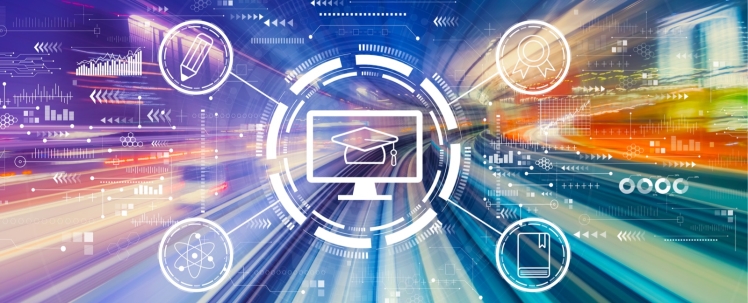The landscape of education is undergoing a profound transformation as we navigate the complexities of the 21st century. Traditional approaches to learning and teaching are being challenged, giving way to innovative and transformative methodologies that aim to prepare students for an unpredictable future. In this article, we explore the dynamic shifts in education, emphasizing the importance of adaptability, critical thinking, and a holistic approach to learning.
Personalized Learning: Tailoring Education to Individual Needs
One of the key elements in navigating the future of education is the shift towards personalized learning. Recognizing that each student has a unique set of strengths, weaknesses, and learning styles, educators are embracing approaches that tailor instruction to individual needs. Adaptive learning technologies, data analytics, and artificial intelligence are being employed to create personalized learning pathways, ensuring that each student can progress at their own pace.
Personalized learning not only addresses the diverse needs of students but also fosters a deeper engagement with the material. By allowing learners to explore topics that resonate with their interests and providing targeted support where needed, personalized learning enhances overall academic performance and promotes a lifelong love for learning.
Project-Based and Experiential Learning: Bridging the Gap Between Theory and Practice
To navigate the future successfully, students must be equipped with practical skills that go beyond rote memorization. Project-based and experiential learning methodologies are gaining prominence as they immerse students in real-world scenarios, fostering critical thinking, problem-solving, and collaboration.
By engaging in hands-on projects, students bridge the gap between theory and practice, gaining a deeper understanding of the subject matter. These experiences not only enhance academic knowledge but also develop essential life skills, such as effective communication, time management, and adaptability. As the workforce becomes increasingly dynamic, these skills are invaluable in preparing students for the challenges they will face in their future careers.
Technology Integration: Harnessing the Power of Digital Tools
The integration of technology is a driving force in transformative education. Digital tools and platforms offer educators and students unprecedented opportunities for collaboration, creativity, and access to information. Virtual classrooms, augmented reality, and online collaboration tools are breaking down geographical barriers, providing learners with a global perspective.
Furthermore, emerging technologies, such as artificial intelligence and virtual reality, are revolutionizing the learning experience. AI-powered tutoring systems can provide personalized assistance, while virtual reality simulations offer immersive educational experiences, allowing students to explore historical events, scientific concepts, and cultural phenomena in a three-dimensional space.
Lifelong Learning: A Continuous Journey of Growth
In a rapidly evolving world, the concept of education as a finite journey is giving way to the idea of lifelong learning. Navigating the future requires a commitment to continuous growth and adaptation. Educational institutions are embracing this philosophy by providing flexible learning opportunities, online courses, and resources that allow individuals to upskill or reskill throughout their lives.
Encouraging a mindset of lifelong learning prepares individuals to navigate the uncertainties of the future job market, where adaptability and a willingness to learn new skills are paramount. Embracing continuous learning not only enhances professional development but also contributes to personal fulfillment and a sense of purpose.
Global Citizenship: Fostering Cross-Cultural Understanding
As the world becomes increasingly interconnected, the importance of global citizenship cannot be overstated. Educational programs are incorporating a focus on cultural competence, international collaboration, and global awareness. Students are encouraged to engage with diverse perspectives, develop empathy, and understand the interconnectedness of global issues.
Through virtual exchanges, international partnerships, and multicultural curriculum integration, educators are nurturing a sense of global responsibility. Fostering an understanding of different cultures and perspectives not only prepares students for success in a globalized world but also promotes peace, tolerance, and cooperation on a global scale.
Conclusion:
Navigating the future of education requires a departure from traditional models and a willingness to embrace transformative approaches that prioritize adaptability, critical thinking, and holistic development. Personalized learning, project-based experiences, technology integration, a commitment to lifelong learning, and the cultivation of global citizenship are all essential components of a forward-looking educational paradigm.
As we navigate the future, educators, policymakers, and stakeholders must collaborate to create an educational landscape that empowers students to thrive in an ever-changing world. By embracing these transformative approaches, we can ensure that education becomes a catalyst for individual growth, societal progress, and global harmony.

